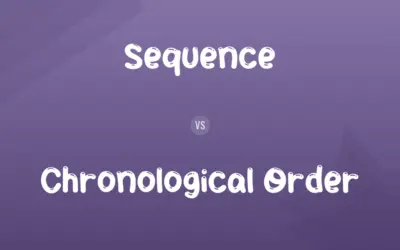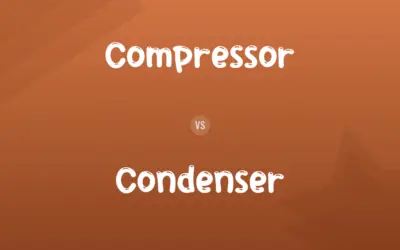Akinesia vs. Akathisia: Difference and Comparison
Akinesia refers to a lack of movement or muscle rigidity, while akathisia is a feeling of restlessness and a compulsion to move.

Difference Between Akinesia and Akathisia
Akinesia and akathisia are both medical terms that relate to movement disorders, but they depict distinctly different conditions. Akinesia primarily describes a loss of voluntary muscle movement. It's commonly seen in conditions like Parkinson's disease, where individuals might experience difficulty initiating movement, causing them to appear frozen. On the other hand, akathisia is characterized by an inner sensation of restlessness. Those with akathisia often feel an uncontrollable urge to move, typically manifesting as pacing, rocking, or shifting weight from one foot to another.
While akinesia suggests an inability or significant reduction in voluntary movement, leading to stiffness and rigidity, akathisia implies excessive movement. This movement in akathisia is not out of a desire to perform an action but rather a compulsive response to an overwhelming feeling of restlessness. Therefore, someone with akinesia might struggle to start a movement or might appear motionless, whereas someone with akathisia would find it hard to remain still.
Muazma Batool
Jan 07, 2024
In a clinical setting, identifying whether a patient has akinesia or akathisia is crucial for diagnosis and treatment. Akinesia is typically treated with medications that increase dopamine levels, given its association with conditions like Parkinson's. In contrast, akathisia often arises as a side effect from certain medications, especially antipsychotics, and its management might involve adjusting the drug regimen or adding medications to counteract the restlessness.
Understanding the nuances between akinesia and akathisia is crucial, not just for healthcare professionals but for patients and caregivers as well. Recognizing the symptoms allows for timely intervention and better management. While both conditions impact movement, they represent opposite ends of the spectrum: akinesia being a lack of desired movement and akathisia being an excess of undesired movement.
Leo
Jan 07, 2024
Akinesia vs. Akathisia Comparison Chart
Definition
Loss of voluntary muscle movement
Sensation of restlessness leading to movements
Associated Conditions
Parkinson's disease
Side effect of antipsychotic medications
Muazma Batool
Jan 07, 2024
Symptom Presentation
Rigidity, inability to initiate movement
Compulsive movement, inability to stay still
Akinesia vs. Akathisia Definitions
◉Akinesia
Absence of voluntary movement.
She displayed akinesia, unable to initiate a step forward.
Muazma Batool
Sep 25, 2023
◉Akathisia
Motor restlessness often seen with antipsychotics.
The prescribed antipsychotic resulted in evident akathisia.
Lucas
Sep 25, 2023
◉Akinesia
A hallmark symptom of certain neurological disorders.
Akinesia's presence indicated a possible neurological issue.
Henry
Sep 25, 2023
◉Akathisia
Overwhelming need to move due to restlessness.
Akathisia made him pace the room incessantly.
Muazma Batool
Sep 25, 2023
◉Akinesia
Reduced motor functionality leading to stillness.
Due to akinesia, he remained in a near-static position.
Levi
Sep 25, 2023
◉Akathisia
Inner sensation causing an inability to stay still.
Akathisia's distressing sensation compelled her to constantly shift.
Leo
Sep 25, 2023
◉Akinesia
Muscle rigidity and motionlessness.
Parkinson's patients often suffer from akinesia.
◉Akathisia
Unintended movement consequence from certain drugs.
His leg-twitching was diagnosed as akathisia from his medication.
◉Akinesia
Inability to start voluntary actions.
Akinesia made even the simplest tasks challenging for him.
Levi
Sep 25, 2023
◉Akathisia
Compulsive movement often from medication side effects.
After taking the drug, she developed akathisia.
◉Akinesia
Loss of normal motor function, resulting in impaired muscle movement.
◉Akathisia
(medicine) A sensation of restlessness characterized by an inability to sit still/down or remain motionless/seated, arising from a subjective need or desire to move, often coinciding with the sensation of twitching of muscles, often as a side effect of psychiatric medications.
◉Akinesia
(medicine) The loss of the ability to control motor muscles.
◉Akinesia
Paralysis of the motor nerves; loss of movement.
◉Akinesia
motionlessness attributable to a temporary paralysis
Akinesia vs. Akathisia Frequently Asked Questions
How does akathisia manifest in patients?
As an overwhelming sensation of restlessness leading to constant movement.
Muazma Batool
Jan 07, 2024
Can medications cause akinesia?
Yes, especially those that affect dopamine levels in the brain.
Is akinesia reversible?
It depends on its cause; in some cases, treatments can improve symptoms.
Elijah
Jan 07, 2024
What's a common cause of akathisia?
It's often a side effect from antipsychotic medications.
Kaitlyn
Jan 07, 2024
What is akinesia related to in medical terms?
It refers to a lack of voluntary movement, often seen in Parkinson's disease.
How might one differentiate between akinesia and akathisia?
Akinesia shows as rigidity or motionlessness, while akathisia presents as compulsive movement.
Lucas
Jan 07, 2024
Can akathisia be managed?
Yes, often by adjusting the causative medication or adding counteractive drugs.
Which term refers to muscle stiffness and reduced movement?
Akinesia is associated with such symptoms.
Kaitlyn
Jan 07, 2024
Do both akinesia and akathisia relate to the brain's dopamine levels?
While akinesia often relates to reduced dopamine, akathisia might arise from medications that alter dopamine and other neurotransmitter levels.

































